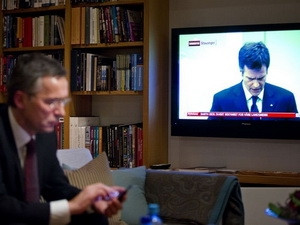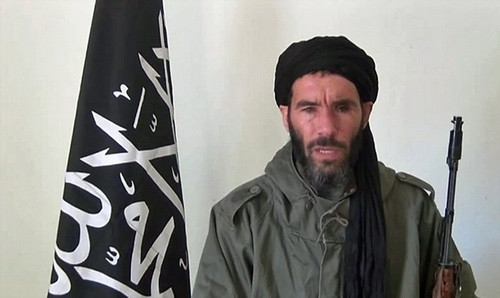Holding breath with the hostage rescue in Algeria
Foreign governments have spoken out about the fate of their citizens held by Islamist militants at a gas plant in the Algerian desert, after a dramatic rescue left several hostages dead.
As relatives of the hostages waited anxiously, officials in Algeria said special forces had taken control of the factory's residential complex, where hundreds of hostages were being held. But government forces are still surrounding the In Amenas factory, with security still uncertain, and countries with citizens there have urged local authorities to ensure the hostages are not put in danger.

Norwegian Prime Minister Jens Stoltenberg updates news on the hostage rescue in Algeria (Source: AFP)
Information Minister Mohamed Said said “a number of people” had been killed or injured and “a large number” of hostages had been freed at the plant, which is jointly operated by BP, Statoil and Sonatrach. The plant employs workers from Britain, the United States, Japan, France, Italy, Norway and several other countries.
“We had no prior knowledge of the attack,” a senior US official told AFP, adding that the US government “strongly advised” Algerian authorities to make the safety of the hostages a top priority.
Japanese construction company JGC said it had confirmed the safety of three of its employees in Algeria, but the whereabouts of 14 others remained unknown. The kidnappers, who claimed links to Al Qaeda, said the military had carried out airstrikes and a ground operation at the factory near the Libyan border that killed 34 hostages, but could not immediately confirm the reports.
The kidnappers told the Mauritanian news agency ANI that they “will kill all the hostages if government forces enter the factory.” They also said the move was in response to France’s military intervention against Islamist militants in Mali, Algeria’s neighbor.
Algerian Interior Minister Dahou Ould Kablia said the attackers came from across the border in Libya, according to intelligence reports.
British Prime Minister David Cameron canceled a major speech on European policy to monitor the hostage crisis, describing the situation at the plant as “very bad.” “We know that one person (British citizen) has died. Algerian armed forces are now attacking the plant,” Mr. Cameron said. “The situation is dangerous, uncertain and fast-moving, and I think we have to prepare for the possibility of more bad news.”
French President Francois Hollande said he was receiving constant updates on the “devastating” situation there. Italian Foreign Minister Giulio Terzi called the deaths of the hostages “a tragedy of brutal terrorism.”
Islamist gunmen seized the factory on Wednesday in an attack that left two people dead. Algerian television said nearly 600 Algerian workers and four foreigners – two British, one French and one Kenyan – were freed in Thursday’s operation. The Irish government said one of its citizens had been freed.
A total of 41 foreigners were held hostage.
One-eyed Mokhtar Belmokhtar, who claimed responsibility for commanding the kidnapping (Source: AFP)
Islamist militant Mokhtar Belmokhtar, a one-eyed Algerian jihadist with links to Al Qaeda, has claimed responsibility for the attack.
Belmokhtar, nicknamed “Uncatchable” and “Mr. Marlboro” for his cigarette smuggling activities and erratic behavior, was recently one of the most senior leaders of Al Qaeda in the Islamic Maghreb (AQIM) in the region.
But he was pushed out of the organization late last year and formed his own group called “Blood Revengeants.” Belmokhtar has previously been accused of kidnapping and murdering both Algerians and foreigners.
The leader of the kidnapping operation at the scene, Abu al-Baraa, is believed to have been killed, according to ANI. “We asked the Algerian army to withdraw from the area of the factory to negotiate,” Abu al-Baraa previously told Al-Jazeera. But the Algiers government said it would not negotiate “with terrorists.”
Meanwhile, the situation in Mali continues to be complicated. The UN special envoy for the Sahel region, Romano Prodi, said that France’s military intervention on land and in the air in Mali is the only way to prevent Islamist extremists from “establishing a terrorist safe haven in the heart of Africa.”
In Brussels, French Foreign Minister Laurent Fabius said European Union (EU) countries could send troops to help France in its former West African colony. On Thursday, more French troops were deployed to Mali, bringing the total number of French troops there to 1,400, according to the Defense Ministry. The ministry also said the maximum that could be deployed there was 2,500 soldiers.
Another group of international troops from Chad has also arrived in Mali, while nearly 100 more Nigerian and Chadian troops are on their way to form a joint West African force of 5,000 soldiers. The French defence ministry said fighting was taking place “in some areas”, but there was no fighting in the Diabaly region, 400km north of the capital Bamako, where most of the French troops are based./.
According to Vietnamplus - DT






